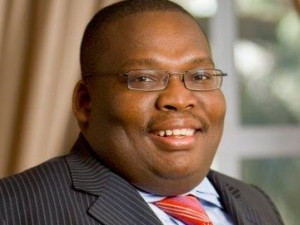
Telkom's R2.67 billion bid to buy Business Connexion (BCX) - which will give it the IT skills it needs to compete in the connected world - still has some way to go before it is done and dusted and BCX is delisted.
Telkom's cash offer of R6.60 a share was unanimously accepted by BCX stock-holders yesterday - even though it was below the R7.02 value proposed by BDO Corporate Finance as fair.
The biggest hurdle the deal will have to get over will be approval from the Competition Tribunal, and that outcome could be as far away as January.
The offered amount was a 20% premium on BCX's 14 April share price, and a discount of 5.98% to the core fair value of R7.02. The stock is currently trading at R6.45.
Immediate benefit
Should Telkom win over the regulators, including the Independent Communications Authority of SA, it will benefit from an immediate bottom line boost. BCX, which ends its financial year this month, recorded net profit of R233 million for the 2013 year, a gain Telkom would appreciate adding to its R4 billion full-year profit.
BCX CEO Isaac Mophatlane says the deal is not being made to eliminate costs, although there will be synergies, but rather so the companies can leverage off each other.
Independent analyst Paul Booth says if Telkom fails at the tribunal - the biggest obstacle facing the company - it would continue to struggle along, and would have to seek alternative entities to buy.
Booth notes this would inevitably mean a smaller company, as Telkom does not have the time to build an IT unit like BCX from scratch. "Knowledge can't be turned on overnight like a tap." However, he says Telkom would not have approached BCX again unless it was confident of regulatory success, and the deal will put more pressure on the sector to consolidate.
Different times
Eight years ago, the tribunal quashed Telkom's first attempt at buying BCX - for R2.4 billion - when it determined the merger would harm downstream competition. Mophatlane says this time around, the bid should be successful because the market is a different place, as there are more competitors, and convergence in the sector is already taking place.
Mophatlane notes the deal will benefit BCX because it has not previously had a connectivity arm and, should it stumble at regulatory approval, the company will have to come up with a "plan B". He says the group has always been clear that it wanted a telecoms partner, which could have been in the shape of a joint venture, or an acquisition, because of the increasing shift towards the convergence of IT and telecoms.
While BCX will benefit from being able to tap into Telkom's network, the big gainer will be Telkom, because it will acquire IT skills that are key to its vision of a digital world. The company wants to create digital homes and businesses off the back of an all IP-based network that runs on fibre, and high-speed mobile broadband.
Necessary skills
Booth says Telkom needs about 60% of BCX to help it in terms of convergence happening between connectivity and IT.
Telkom CEO Sipho Maseko says the deal will give Telkom scale to expand into IT services and helps reinforce its core connectivity business as it will create an ICT company that can address technology and communication needs of South African businesses nationally. "A key consideration of our strategy is to grow beyond our core business of connectivity and expand into end-to-end ICT services. This will form part of the strategy to improve performance and restore profitability."
Mophatlane says IT is the key to making Telkom's vision a reality, and is the rationale for Telkom's offer. As part of the deal, key executives will also receive bonuses if targets are hit so that Telkom can have access to key skills in IT services that it does not currently boast.
In the initial circular to shareholders, BCX said its 11 designated executives, who were still in its employ when the deal vested, would in total receive a R33 million bonus if all the targets are met. This additional pay-out would be made for four years, from 2017, in addition to the combined bonus of R18.6 million for the 2016 financial year.
Share